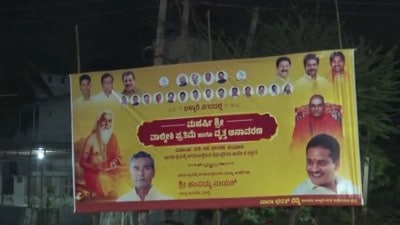Mind that messenger
That corruption today permeates all walks of life is widely accepted. It is even tolerated as a necessary evil. What is, however, less known...

That corruption today permeates all walks of life is widely accepted. It is even tolerated as a necessary evil. What is, however, less known is that from time to time there have been individuals who have refused to join the comfortable mainstream and who have stood up and fought. They have, so to say, blown the whistle in order to raise an alarm and draw attention. In the process, careers have been ruined. Some have lost their jobs, others have paid with their lives.
The latest episode of the young Indian Institute of Technology engineer, Satyendra Dubey, revealed by The Indian Express has incidentally brought to limelight a significant recommendation made by the now largely forgotten National Commission to Review the Working of the Constitution in regard to the need for a whistle-blowers act.
The commission had flagged the importance of probity in governance and in the conduct of holders of public office. Unless public office is regarded as a trust held for the public good, even the most enlightened policies for promoting the welfare of society just cannot work. While recognising that legislation alone is no solution, it was felt that at least we should try to 8216;8216;block some of the escape routes that the dishonest find to their advantage in the existing laws8217;8217;.
The commission drew attention to the existence of public disclosure acts in several western countries aimed at fighting the evils of corruption and mal-administration. These acts have come to be popularly called whistle-blowers acts. The objective of these acts is to protect the informants against retribution and any discrimination 8216;8216;for reporting what they perceive to be wrong-doing, that is, for bona fide disclosures which may ultimately turn out to be not entirely or substantially true8217;8217;. The categorical recommendation of the commission was that 8216;8216;similar laws may be enacted in India also8217;8217;.
A background paper of the Constitution Commission had mentioned Australia, the United Kingdom, Canada and the United States as countries where whistle-blower laws already existed. It also said that the Law Commission of India was understood to be in the process of drafting a Public Disclosure Bill for the consideration of the government. The motto of the British Public Interest Disclosure Act 1998, it was further pointed out, was to 8216;8216;address the message rather than the messenger; and resist the temptation to cover up serious malpractices8217;8217;.
There is no reason why the report of the Constitution Commission should have been kept in cold storage for more than a year and half. The commission was appointed in February 2000 in fulfillment of a promise made to the people and the Parliament. Earlier, it was part of the National Agenda for Good Governance which was also the NDA manifesto and its common minimum programme. The Constitution Commission submitted its report to the government in March 2002.
What is needed is not ad hoc, patchwork treatment, but a sincere consideration of the integrated scheme of recommendations made by the commission in various fields, accompanied by other reforms in areas of electoral processes, political parties, decentralisation of power, judiciary and legislatures.
It must be pointed out that merely passing a half-hearted whistle-blowers act may not help stem the terrible rot to which we have descended. Also, it cannot be denied that this law would be open to misuse by unscrupulous elements with ulterior motives. It would, therefore, have to be drafted with great care and caution.
The writer was a member of the Constitution Commission and chairman of its drafting committee
- 01
- 02
- 03
- 04
- 05































